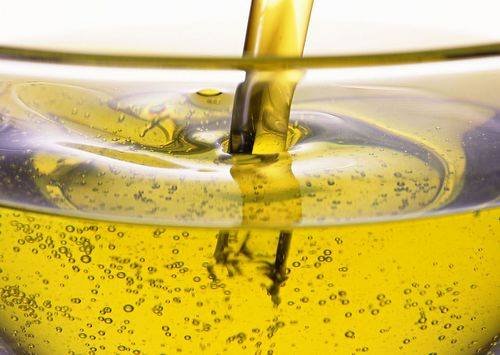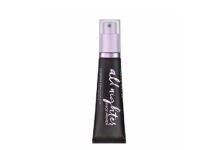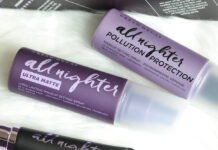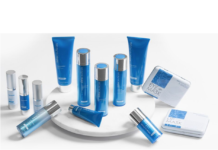Why is natural sun protection better than those artificial sunscreens?
The cosmetic industry offers us numerous sunscreen products, many of which are harmful to health. But there is a natural and safe alternative in the form of natural sun protection oils. Natural remedies for skin protection are especially recommended for people with sensitive skin, people suffering from allergies and children. It is recommended to combine vegetable oils and butters with natural minerals (zinc oxide, titanium dioxide or algae extract – Helioguardom 365).
THE BEST NATURAL SUN PROTECTION OILS WITH HIGH SPF:
Take a look at the list of the best natural sun protection, there are no negative effects of any kind when using natural oils and they are not toxic and carcinogenic like those artificial sunscreens sold in every store.

• Raspberry Seed Oil
Raspberry seed oil has the highest natural sun protection factor, depending on conditions of cultivation ranges from 28 to 50 SPF. It can be used independently or as a supplement to blends. It has strong anti-inflammatory properties and is very suitable for skin prone to irritation, rash, eczema and lesions.
Raspberry seed oil is a light oil that is very rapidly absorbed into the skin, contains large amounts of Omega 3 and 6, vitamin E and antioxidants, this oil provides almost complete preparation for tanning and after sun care.
Apply it half an hour before exposing to sunlight and, of course there are no limitations or negative consequences of use. Pure raspberry seed oil is 100% organic and natural, no toxins, no carcinogens and no any sort of chemicals that are unhealthy for our skin and body.
• Carrot seed oil
This oil improves the general condition of the skin and gives it elasticity. At the same time it works against various skin ailments: eczema, psoriasis, ulcers, vesicles, and also prevents wrinkles and age spots. Carrot seed oil is an essential oil with a large number of antioxidants, it is antiseptic and fragrant with a large amount of vitamin A.
Besides that it provides a proper care after sunbathing and ensures proper wetting of the skin that is needed after long exposure to sunlight. It has anti inflammatory effect and prevents the rapid aging of the skin due to the toxic environment and facilitates the disappearance of bruising and skin damage.
Estimated natural SPF varies from 38 to 40. Carrot seed oil not only protects the skin from the sun but also prevents skin disorders such as acne and eczema and reduces skin inflammation.
• Hazelnut oil
Hazelnut oil is a popular supplement in natural cosmetic products. Valued as natural sun protection, because it protects against both UVA and UVB radiation. It is absorbed quickly, prevents photo-aging and adverse impact of external factors. Suitable for mixed skin to dry skin. It may be used alone or in mixtures. Natural SPF is estimated between 10 and 30.
• Wheat germ oil
Wheat germ oil is the best natural source of vitamin E, which makes it excellent for skin care. In particular, it is great for dry skin, it is recommended for prevention of the signs of aging, deep skin regeneration and healing irritation. Can be used pure or in mixtures. It can not be used only by people who are allergic to wheat.
Estimated natural sunscreen is SPF 20. Pure organic wheat germ oil is great for skin whether for sun protection and for a massage.
• Soybean oil

Soybean oil enhances and evens the complexion and prevent wrinkles. It is rich in vitamin E and is quickly absorbed. This oil has an SPF 10. It is also used as a mosquito repellent. Soybean oil is not only for natural sun protection but it will also repel mosquitoes from your skin.
• Coconut oil
Coconut oil has a protective factor of 4-10 depending on the skin type and skin pigmentation, it is okay to use edible coconut oil, which is sold in glass jars. This oil has excellent nutritional properties, full of vitamins, and perfectly fights against fungi, viruses and bacteria. We are recommending it for preparing the skin for sunbathing and for protection and nutrition of the skin after sunbathing.
IMPORTANT!
If you decide to buy an artificial sunscreen product after all:
You should pay attention that sunscreen is organic, preservative-free, biodegradable, no petroleum products which are the most common ingredients of these products (oxybenzone and retinol). You should also pay attention to the gluten-free products, dairy proteins – casein and lactose, that they have no plastic, hormones, toxins, and believe it or not GMOs and MSG additives.
Foto-toxic oils that you shouldn’t use under the sun
St. John’s Wort oil is great for combat stretch marks, ulcers, hemorrhoids, scars, wrinkles, dry and sun-damaged skin, perfect for combating serious burns and for the healing of deep wounds and post-operative recovery, acts as a mild sedative, relieves symptoms and inflamed varicose veins and rheumatism, but can not be used for sunbathing, because it causes the formation of sunburn, sun freckles and his incredibly beneficial properties combined with our skin and sunlight become extremely negative and possibly carcinogenic.
This is the list of oils that are not suitable for sunbathing:
St. John’s wort oil, bergamot oil, cumin oil, ginger oil, seed oil from grape, oranges, lemons and other citrus fruits, cassia oil, anise, bay oil, cedar oil, sage, valerian, camphor, cinnamon oil, clove oil, coriander, hops, nutmegs, dining, juniper, parsley, pepper, marigold, tarragon, thyme – white, turmeric and valerian.















